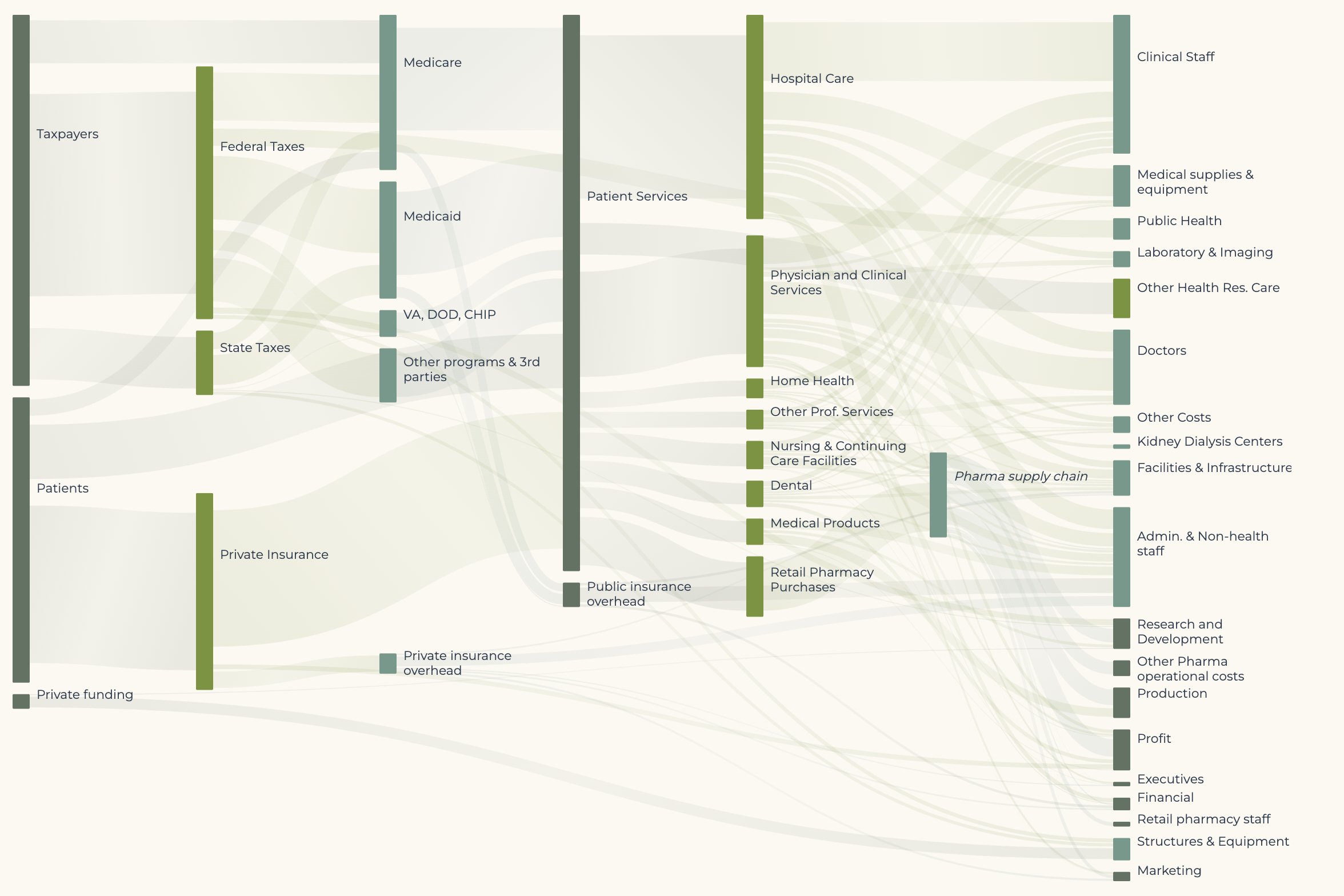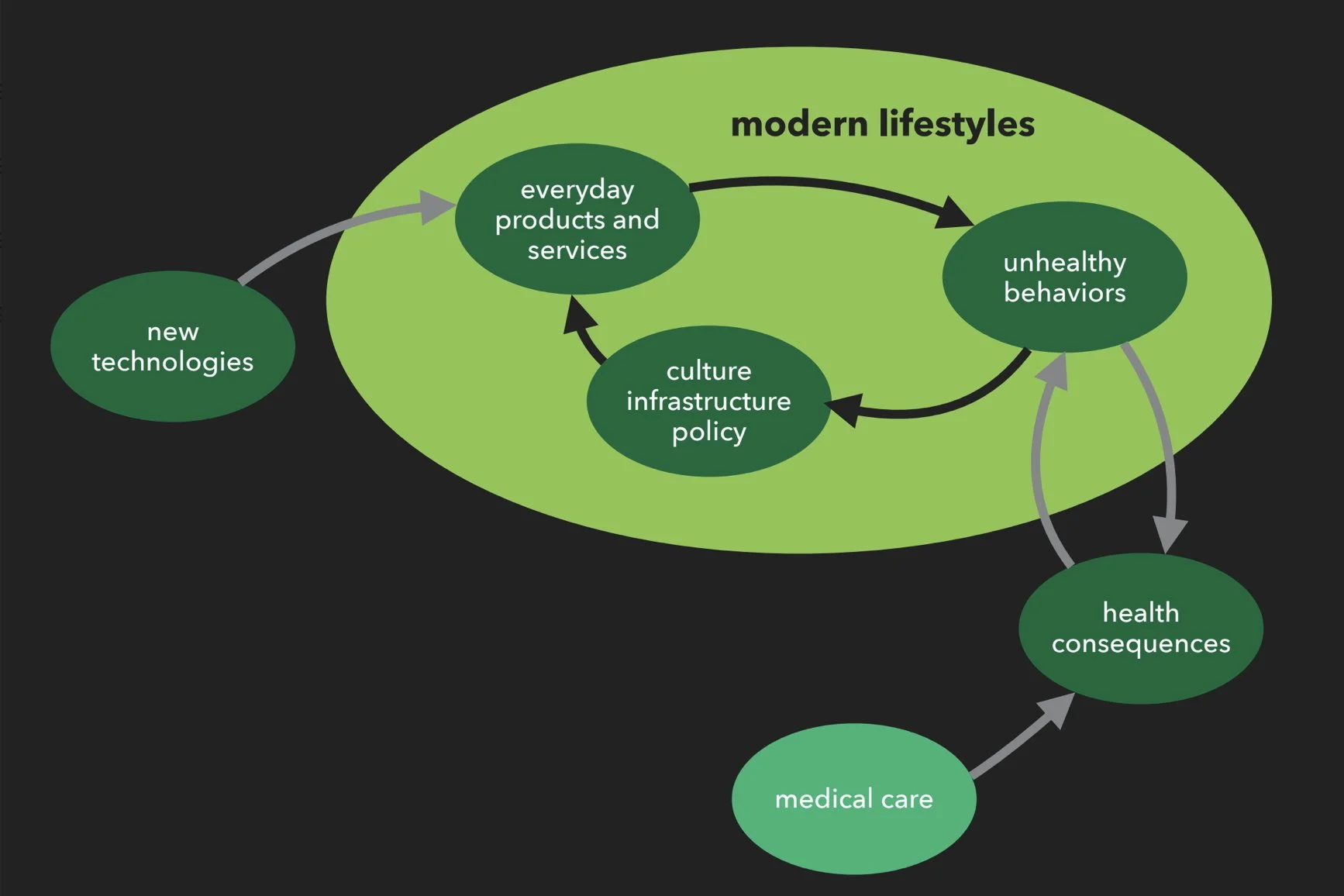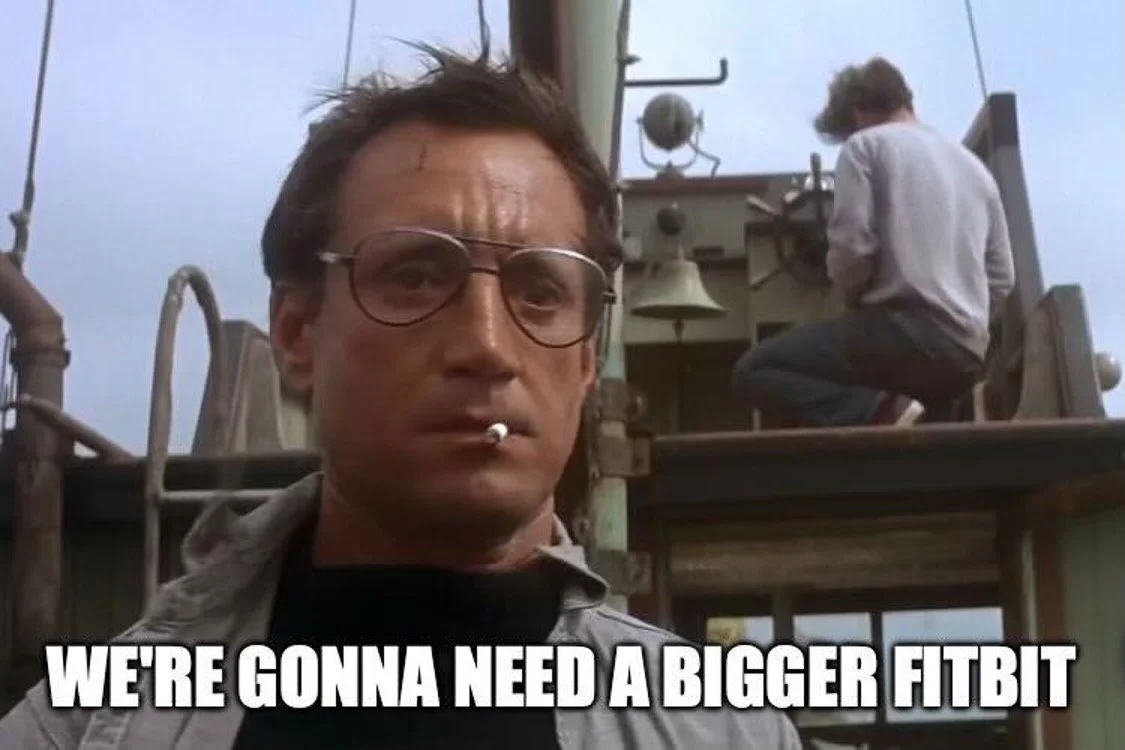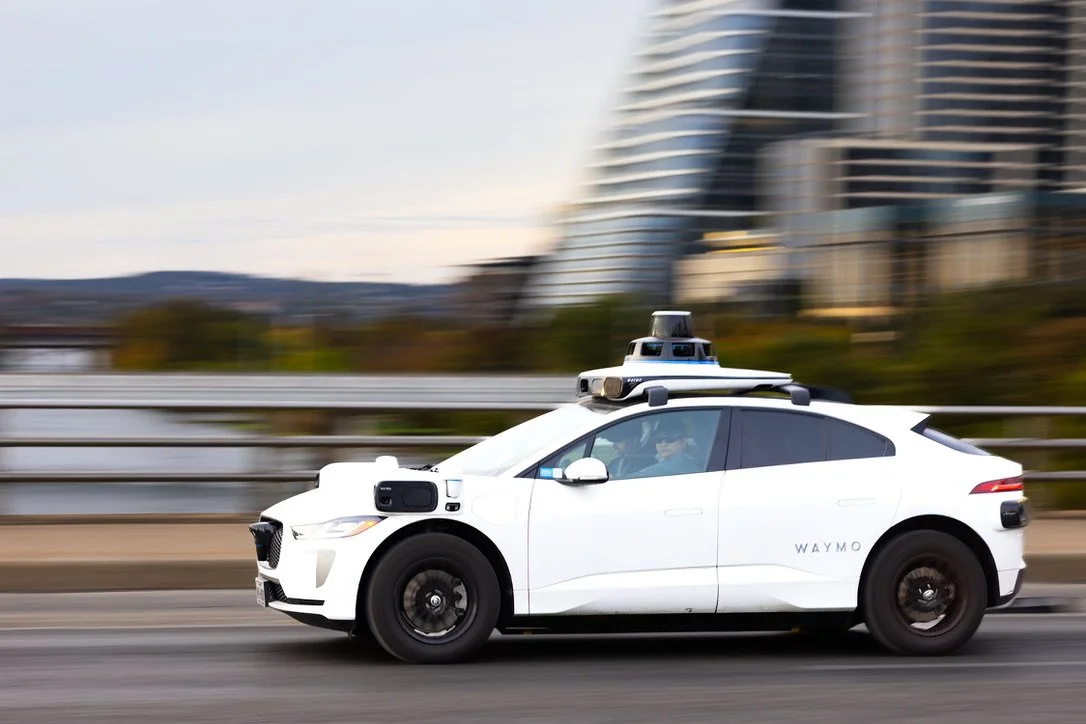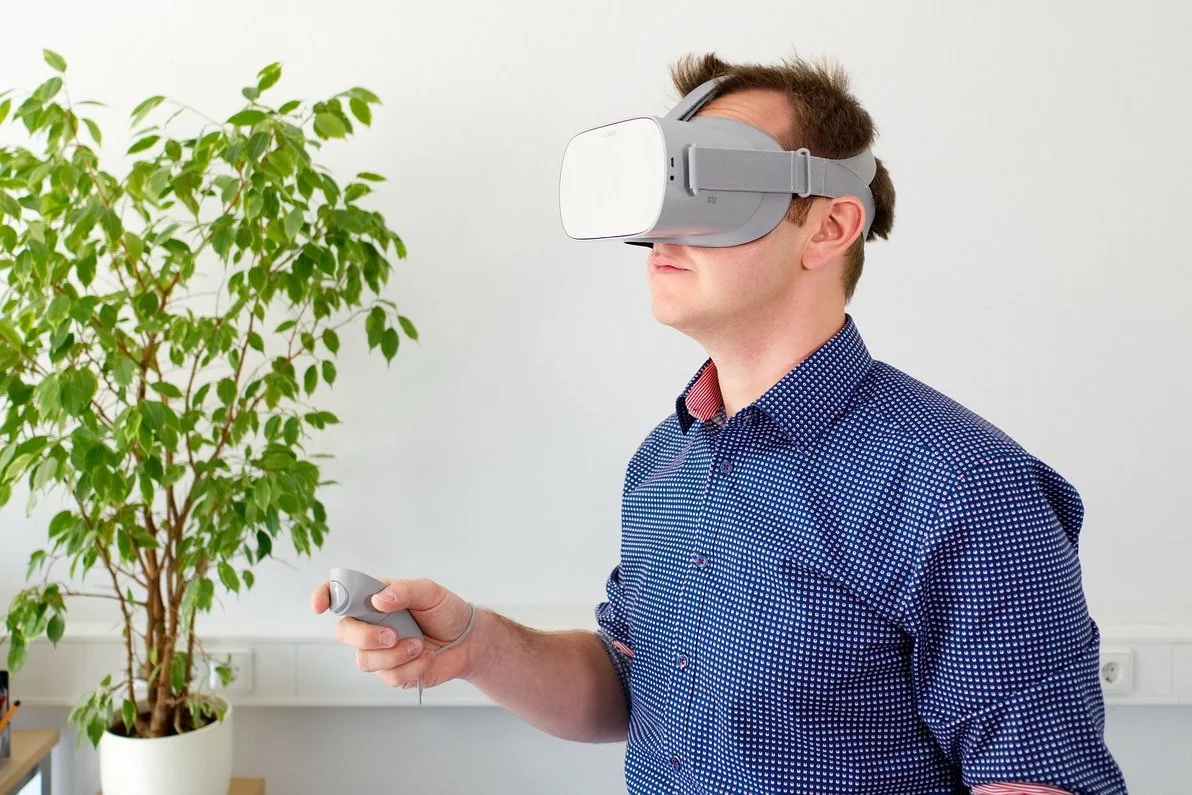We all know the statistics. The United States spends $5 trillion on health care each year - and 80% of it passes through private and government insurance into patient care, hospitals, and prescription drugs. This is the disease business, and it is a staggering monument to misplaced priorities and reactive inefficiencies.
Read MoreJarrett Walker describes the history and the reasons behind why we, in the US, have let transit survive – but never thrive – over the years and makes the case for why we should support it. From our perspective, looking at the environmental contexts that shape health, public transit is really important. The benefits include greater physical activity and less obesity, more social interaction, and access to groceries and needed health and social services for its riders, and less pollution for all.
Read MoreThere is something surreal about Tad Friend’s profile of the longevity movement “How to Live Forever and Get Rich Doing It” in The New Yorker. Told from the perspective of shadowing Peter Diamandis, one of the movements best known gurus and entrepreneurs, it’s a tale starring many of today’s A-list concepts: AI, billionaires, effective altruism, colonizing space, achieving immortality through longevity “escape velocity” and/or achieving immortality by uploading our minds to the cloud.
Read MoreAmong the iconic phrases that best evoke the spirit of America - “Just Do It," “I’m Luvin’ It” - “Freedom of Choice” is surely up there.
In just three words, Freedom of Choice expresses the ideals of American liberty, where individuals are empowered to forge their own path.
The idea dates back to the early years of the republic, when Alexis de Touqueville noted that American individualism was a new and powerful force that might rival the common good of democracy. But the phrase really took off in the consumer age, in the bountiful days after World War II.
Read MoreThe curse of the systems thinker is that one is always seeing patterns, always searching for the fundamental forces and dynamics that underlie a system and give rise to the peculiar results one sees. One is always – as we like to say in public health – looking upstream, for the root causes – and even their root causes. It’s hard to stay focused on the immediate problems at hand, when there are deeper, more fundamental causes of those problems that are – most perplexing to the systems thinker – so deeply embedded that they are rendered nearly invisible, or at least taken for granted. They are the givens, the fixed conditions that exist outside the solution space.
Read MoreCo-founder Steve Downs recently gave a keynote address at the annual meeting of the Society for Behavioral Medicine. Steve’s talk covered the first five years of Building H — what we’ve been building and the lessons we’ve learned.
Read MoreLast month, San Francisco’s new mayor, Daniel Lurie, proposed a new zoning plan for the city that he dubbed “family zoning”: a place “with space for more families, more workers, and more dreams.” Behind the family-friendly spin, the new plan is recognized as a textbook upzoning. It will hopefully change the west side of the city, which added just 4,000 homes over the past 20 years, into a more fertile place for housing.
Read MoreSpending time outdoors. It’s one of the five behaviors we use in our Building H Index framework to assess how products and services influence the health of their users. But let’s be honest – it’s not one of the more recognizable health behaviors like diet and physical activity. Yet we care about it because it does have significant health impacts. Spending time outdoors – and in nature – has been linked to a growing list of health benefits from lower blood pressure to avoiding myopia.
Read MoreOur co-founder Steve Downs joined Dr. Joshua Sharfstein, the vice dean for public health practice and community engagement at the Johns Hopkins Bloomberg School of Public Health, on the popular podcast Public Heath On Call. They discuss the Building H Index: what it covers, which products scored better than others, how we did it, and — importantly — why we created the Index.
Read MoreAs regular readers know, Building H developed a rating system — the Building H Index — that measures the affects of products on their consumers. It’s a 1-100 scale where 50 and above can be considered a “good” score - a net positive for human health - and below 50 would be a “bad” score, or a net negative for health. We released the last index this past October, and we’ve been looking for ways to make it even more impactful. One idea: Might our Index be something that investors might use in evaluating their portfolios - especially so-called socially responsible investing?
Read MoreThere’s been a recent spate of commentaries arguing that we’re on the verge of artificial general intelligence (AGI, in the current jargon). New York Times tech reporter Kevin Roose wrote recently, in his piece Powerful A.I. Is Coming. We’re Not Ready: “I believe that very soon — probably in 2026 or 2027, but possibly as soon as this year — one or more A.I. companies will claim they’ve created an artificial general intelligence, or A.G.I., which is usually defined as something like “a general-purpose A.I. system that can do almost all cognitive tasks a human can do."
Read MoreComfort food is supposed to make us feel better - it’s right there in the name. And indeed, most people choose comfort foods when they want to feel better (see chart, below, from a 2019 survey). But does it actually make us feel better - as in, does it improve our mental health? And are there other foods they might actually do the job better?
Read MoreWe’re seeing a troubling increase in deaths of young people. In a new study, sociologist Elizabeth Wrigley-Field and her colleagues analyzed mortality data for US adults aged 25-44 and found a 70% increase in mortality in 2023 as compared with what would have been expected had 2011 rates continued. That translates to more than 71,000 excess deaths in this age group in 2023 alone.
Read MoreOur co-founder Thomas Goetz joins hosts Halle Tecco and Michael Esquivel on the Heart of Health Care podcast to discuss the origins of Building H, why it’s so hard for Americans to be healthy, the Building H Index and how to get companies to create products that make it easier for people to live healthy lives.
Read MoreWhen the Chiefs take on the Eagles in Super Bowl LIX this Sunday, one thing is certain: tens of millions of Americans will collectively bet more than a billion dollars on the game – and not just on the final score, but also on the most minute aspects of the game and even on the non-sports elements, such as the length of time Jon Baptiste holds the note of the final “brave” in the national anthem and whether Travis Kelce will pop the question to Taylor Swift.
Read MoreA couple of recent developments on the nutrition front caught our eye. First, as expected the FDA released its final rule on when food manufacturers can claim that a food item is “healthy.” The rule hadn’t been updated in three decades and we now have 300 pages of very precise standards dictating, for example, how much added sugars, sodium and saturated fats can be included in a “vegetable product” and still be called “healthy.” The controversy over the rule seems a bit ironic because the rule isn’t likely to have much impact.
Read MoreSelf-driving cars have been the future for some time now. They have followed the Gartner Hype Cycle in predictable fashion, peaking several years back when we could extrapolate the progress to perfection and before a few highly publicized fatal accidents, after which their apparent lack of progress seemed to consign them to the realm of revolutions that weren’t. But, true to Gartner, they’ve been steadily working their way up the Slope of Enlightenment in the form of self-driving taxis in large cities.
Read MoreWe've shared a lot of stories on how tech, design and everyday life affects our health in our newsletter this year. Here’s a list of the ten stories that were most popular with our readers, along with what we said of them.
Read MoreWellness is back! With your personal life coach and raw milk subscription and supplements regimen, you are on the vanguard of the new age of personal health empowerment. And now everyone’s favorite wellness guru, Robert F. Kennedy Jr., is poised to take over as Secretary of Health and Human Services. We live in the healthiest of times. And - oh yeah - the unhealthiest of times, with chronic disease at record levels and all the trend lines going the wrong way.
Read MoreIn her excellent article for Slate, “Welcome to the Human Doom Loop,” the writer and urban policy specialist Diana Lind describes and – crucially – names a phenomenon that should be familiar to readers of our newsletter.
Read More
